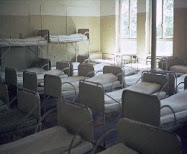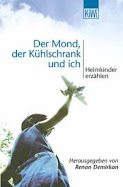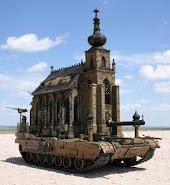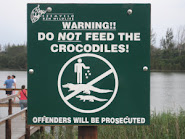(ingevoegd 29-6-2016 >22 uur)
 Het VPKK wil bij u pleiten voor parlementaire interventie in het proces van erkenning en genoegdoening voor voormalig slachtoffers van seksueel misbruik binnen de RKK. U heeft indertijd besloten de RKK het voordeel van de twijfel te geven en te bezien of zij de aanbevelingen van de Cie. Deetman I naar behoren zou uitvoeren en u heeft de monitoring van die uitvoering overgelaten aan Deetman. Wij menen dat in de afgelopen jaren, ondanks de bijzondere inspanningen van de Stichting Beheer en Toezicht (met inbegrip van het Meldpunt, de Klachtencommissie, het Platform Hulpverlening en de Compensatiecommissie) de belangen van onze lotgenoten niet adequaat zijn behartigd. Wij menen bovendien dat Deetman heeft meegewerkt aan ontwikkelingen die de belangenbehartiging verstoorden.
Het VPKK wil bij u pleiten voor parlementaire interventie in het proces van erkenning en genoegdoening voor voormalig slachtoffers van seksueel misbruik binnen de RKK. U heeft indertijd besloten de RKK het voordeel van de twijfel te geven en te bezien of zij de aanbevelingen van de Cie. Deetman I naar behoren zou uitvoeren en u heeft de monitoring van die uitvoering overgelaten aan Deetman. Wij menen dat in de afgelopen jaren, ondanks de bijzondere inspanningen van de Stichting Beheer en Toezicht (met inbegrip van het Meldpunt, de Klachtencommissie, het Platform Hulpverlening en de Compensatiecommissie) de belangen van onze lotgenoten niet adequaat zijn behartigd. Wij menen bovendien dat Deetman heeft meegewerkt aan ontwikkelingen die de belangenbehartiging verstoorden.
De achtergrond van de problematiek wordt gevormd door het gegeven dat de RKK minder dan verwacht openheid van zaken heeft gegeven. Twee aspecten daarvan willen wij hier kort uitlichten, te weten het leveren van steunbewijs en de druk die vanuit bisdommen en KNR wordt uitgeoefend om zaken van misbruik in parochies en congregaties niet binnen die parochies bespreekbaar te maken.
De Cie. Deetman bepleit in zijn eerste rapport herhaaldelijk een meldplicht voor bisschoppen en hogere oversten om aan hen bekende zaken van misbruik te melden aan het Meldpunt (zie bijv. het rapport van de Cie. Deetman I, blz. 495). De bisschoppen en hogere oversten hebben op aanbeveling van de Cie. Deetman toegezegd mee te werken met de Klachtencommissie, hetgeen onder andere inhield dat zij in een procedure zouden melden wat in hun organisaties door archiefonderzoek of navraag eventueel bekend was over misbruik dat door aangeklaagden was gepleegd. Vaak is dat ook gebeurd. Maar vaak ook niet: bij dat deel van het relatief beperkte aantal klachtzaken waar wij op de hoogte zijn van alle ins en outs zijn ook een aantal zaken waarvan wij weten dat het betreffende kerkelijk gezag informatie achterhield en zaken waarbij getuigen door het kerkelijk gezag zijn beïnvloed. De klachtencommissie heeft er soms doorheen kunnen prikken, maar niet altijd.
Daarnaast zijn er de schikkingen, in mediation bij Slachtoffer in Beeld, herstelbemiddeling bij Stichting Triptiek, of onderhands. Het is de verantwoordelijkheid van de bisschoppen en de hogere oversten om bij het Meldpunt te melden wat zij in die context voor klachten hebben aangehoord over welke beschuldigde, maar dat is niet, althans niet altijd gedaan. Het kerkelijk gezag verschuilt zich dan achter de geheimhouding die in de herstelbemiddeling is afgesproken. Maar ten eerste is die geheimhouding relatief: zij kan met instemming van de andere partij worden doorbroken. En ten tweede dient die geheimhouding voor zover zij van het kerkelijk gezag wordt gevraagd ter bescherming van de privacy van de klager en niet die van de aangeklaagde. De melding bij het Meldpunt kan door het kerkelijk gezag worden gedaan zonder de naam van het slachtoffer prijs te geven. Het achterhouden van wat over een aangeklaagde bekend is, is in strijd met de toezegging mee te werken in de klachtenprocedure.
In parochies spelen zich andere processen af. Juist in parochies kon het voorkomen dat kinderen jarenlang door één persoon ernstig worden misbruikt, waarbij ouders ongewild medeplichtig konden worden bijvoorbeeld doordat zij hun kind geregeld naar het parochiehuis stuurden voor klusjes, soms ook had de pleger toegang tot het thuis van een kind en konden zij zich daar, bijvoorbeeld onder het mom van bijles, met het kind afzonderen. Veel parochies waren hechte gemeenschappen, waar ieder gezin meerdere banden had met de kerk, als parochielid, als lid van het koor, als vrijwilliger bij een of andere door de kerk geleide organisatie. Soms was er ook sprake van economische afhankelijkheid. Er zijn overigens nog steeds parochies waar zulke sociale verhoudingen tussen de RKK en burgers een rol spelen en hoewel er veel is veranderd, is het niet ondenkbaar dat juist in parochies nog steeds kinderen worden misbruikt. Dat maakt dat er een bijzonder belang kleeft aan het doorbreken van het zwijgen in parochies.
Maar juist in parochies wordt nog veel verzwegen en de betreffende bisdommen spelen daar een grote rol in. Zo is er in een van de bisdommen in het zuiden van het land een aangeklaagde actief geweest in vier verschillende parochies. Zes jaar na zijn benoeming in 1963 als kapelaan werden de eerste meldingen van misbruik gedaan bij de pastoor, die dit meldde bij het bisdom. De man werd overgeplaatst, en dat gebeurde na latere misbruikzaken nog twee keer. Totdat in 1992 ook aangifte werd gedaan bij de politie - en de aangeklaagde zelfmoord pleegde. De huidige bisschop heeft, nadat er meerdere zaken over deze man door de Klachtencommissie gegrond zijn verklaard uit alle vier de parochies, onder druk van de slachtoffers en de media in de laatste parochie meegewerkt aan het bespreekbaar maken van het daar gepleegde misbruik door deze man en een oproep gedaan aan slachtoffers zich te melden - maar weigert pertinent ondanks herhaald aandringen van de lotgenoten, mee te werken aan een soortgelijke openheid in de andere drie parochies, naar zijn zeggen uit medeleven met de familie van de betreffende pleger.
In een ander dorp, iets noordelijker in het land, zijn door de koster van de RK parochie tussen 1968 en zijn ontslag in 2005 vrijwel zeker minstens negen meisjes en jongens misbruikt, onder wie één meisje gedurende 10 jaren. Er zijn twee klachten ingediend bij de Klachtencommissie en beide zaken zijn gegrond verklaard. Een van de klagers is in gesprek gegaan met het huidige parochiebestuur en is met het bestuur overeengekomen dat het misbruik door deze koster binnen de parochie besproken zou worden middels een artikel over de gegrond verklaarde klachten in het parochieblad. Het betreft een tamelijk klein dorp met een hechte RK parochie, waar geruchten over het misbruik al heel lang de ronde doen. De gemeenschap is verdeeld: de een gelooft de klachten, de ander wijst ze van de hand. Families van de lotgenoten wonen nog steeds in het dorp, minstens een van de slachtoffers ook. Het misbruik door deze koster heeft, behalve de aanzienlijke schade voor de lotgenoten, ook sporen getrokken in de gemeenschap. Maar het aartsbisdom verbood de publicatie in het parochieblad en tot op de dag van vandaag heeft vrijwel niemand in de parochie weet van de gegrondverklaringen.
Een enkele maal heeft de aartsbisschop toegestemd in een gesprek met de voorzitter van het VPKK; de laatste heeft in dat gesprek het gebrek aan openheid in parochies en congregaties ter sprake gebracht, uitgelegd welke schade dat nog steeds aanricht, en om opheldering gevraagd. De aartsbisschop erkende het afgedwongen zwijgen en bracht twee redenen naar voren: enerzijds zou men bij het noemen van namen beducht zijn voor aanklachten wegens smaad, anderzijds zou openheid zonder daarbij de naam van de betreffende pleger te noemen, leiden tot verdachtmaking van alle pastoors die ooit in de parochie werkzaam waren geweest. Hij wenste zijn beleid in dezen niet te wijzigen.
Anders dan KLOKK wordt het VPKK door de RKK en door Deetman niet beschouwd als vertegenwoordiger van lotgenoten. De voorzitter van KLOKK voert met enige regelmaat overleg met de voorzitters van de Bisschoppenconferentie en de Konferentie Nederlandse Religieuzen. De agenda van en de gemaakte afspraken in dat 'voorzittersoverleg' worden niet bekend gemaakt aan lotgenoten. Eén maal kwam zo'n afspraak wel naar buiten, namelijk de afspraak dat de Klachtencommissie zou sluiten. KLOKK heeft ingestemd met die sluiting zonder overleg met lotgenoten of lotgenotengroepn. De rechter heeft in een door het VPKK aangespannen kort geding bepaald dat de Klachtencommissie nog (ten minste) negen maanden moest aanblijven en daardoor konden nog 80 mensen een klacht indienden. Onbekend is of er nog meer afspraken die tegen de belangen van slachtoffers ingaan zijn gemaakt in dat voorzittersoverleg.
Sinds het vrouwennetwerk - het samenwerkingsverband waaruit het VPKK is ontstaan - kritiek uitte op het rapport van de Cie Deetman I in die zin, dat te weinig onderzoek gedaan was naar misbruik van en geweld tegen meisjes, is de verhouding tussen Deetman en het VPKK aanmerkelijk bekoeld. Deetman heeft geweigerd met het VPKK te overleggen over de wijze waarop men zich bij de Cie. Deetman II kon melden of over de termijn waarbinnen meldingen gedaan konden worden. Ook tijdens het tweede onderzoek heeft Deetman elk overleg geweigerd. Pas toen het rapport bij de drukker lag, mochten wij langs komen bij zijn toenmalige secretaris Cora de Witt. Als mosterd na de maaltijd - al onze vragen en twijfels werden zonder meer weggewuifd. Na publicatie van het rapport troffen wij veel fouten in de weergave van de daar genoemde meldingen en bleek ook dat een aantal meldingen, die elk aanwijzingen bevatten voor grootschaliger misbruik binnen eenzelfde congregatie of door eenzelfde pleger, niet was weergegeven - bij navraag bij de secretaris van de Cie. Deetman Bert Kreemers bleken deze meldingen 'onbekend' of 'zoekgeraakt'. De voorzitter van het VPKK heeft een aantal geconstateerde fouten geïnventariseerd, beschreven en gepubliceerd - Deetman heeft ook toen niet met het VPKK willen spreken. Mocht binnenkort weer een monitoring van de heer Deetman verschijnen: het VPKK, dat in de loop van de afgelopen jaren ca. 350 vrouwen en mannen heeft begeleid, dat 2 maal per jaar een drukbezochte lotgenotendag organiseert en over de eigen activiteiten ook met de achterban communiceert middels een website, een facebookpagina en een nieuwsbrief is voor die monitoring tot nu toe niet geraadpleegd.
Wij weten niet welke afspraken zijn gemaakt tussen KLOKK, Deetman en de RKK. Wij hebben er wel
veel vragen over, omdat wat tussen deze partijen besproken en mogelijk uitonderhandeld is, direct de belangen van onze achterban raakt. De onderzoeksjournalistiek heeft een aanzet gegeven in de radio-uitzending van Argos op 30 april jl. Dat onderzoek heeft onze twijfels doen toenemen en nog meer vragen opgeroepen. Wij menen dat het nu aan het parlement is om te onderzoeken wat zich in de periode 2010-2016 achter de schermen heeft afgespeeld.
Het bestuur van de Stichting Vrouwenplatform Kerkelijk Kindermisbruik:
Annemie Knibbe
Brigitte Rezk-Kicken
Marjan van der Kooij
Maud Kips
Pascale Rademakers





 Na twee maanden revalidatie kom ik langzaam weer als mens te voor schijn. Ik heb jullie allen gemist en ben aan de betere hand. Ben nog steeds erg moe maar met hulp van vrienden, familie als mijn zoon Ramon en zijn vrouw Jody, Judith en Judith mijn vertrouwde vriendenkring is hun steun essentieel geweest bij mijn herstel. Jesse komt iedere dag meestal met Jules en rijdt mij overal naar toe; het helpt zulke steun dus ik ben gezegend met jullie.
Na twee maanden revalidatie kom ik langzaam weer als mens te voor schijn. Ik heb jullie allen gemist en ben aan de betere hand. Ben nog steeds erg moe maar met hulp van vrienden, familie als mijn zoon Ramon en zijn vrouw Jody, Judith en Judith mijn vertrouwde vriendenkring is hun steun essentieel geweest bij mijn herstel. Jesse komt iedere dag meestal met Jules en rijdt mij overal naar toe; het helpt zulke steun dus ik ben gezegend met jullie. Het VPKK wil bij u pleiten voor parlementaire interventie in het proces van erkenning en genoegdoening voor voormalig slachtoffers van seksueel misbruik binnen de RKK. U heeft indertijd besloten de RKK het voordeel van de twijfel te geven en te bezien of zij de aanbevelingen van de Cie. Deetman I naar behoren zou uitvoeren en u heeft de monitoring van die uitvoering overgelaten aan Deetman. Wij menen dat in de afgelopen jaren, ondanks de bijzondere inspanningen van de Stichting Beheer en Toezicht (met inbegrip van het Meldpunt, de Klachtencommissie, het Platform Hulpverlening en de Compensatiecommissie) de belangen van onze lotgenoten niet adequaat zijn behartigd. Wij menen bovendien dat Deetman heeft meegewerkt aan ontwikkelingen die de belangenbehartiging verstoorden.
Het VPKK wil bij u pleiten voor parlementaire interventie in het proces van erkenning en genoegdoening voor voormalig slachtoffers van seksueel misbruik binnen de RKK. U heeft indertijd besloten de RKK het voordeel van de twijfel te geven en te bezien of zij de aanbevelingen van de Cie. Deetman I naar behoren zou uitvoeren en u heeft de monitoring van die uitvoering overgelaten aan Deetman. Wij menen dat in de afgelopen jaren, ondanks de bijzondere inspanningen van de Stichting Beheer en Toezicht (met inbegrip van het Meldpunt, de Klachtencommissie, het Platform Hulpverlening en de Compensatiecommissie) de belangen van onze lotgenoten niet adequaat zijn behartigd. Wij menen bovendien dat Deetman heeft meegewerkt aan ontwikkelingen die de belangenbehartiging verstoorden.

 The Royal Commission is holding a public hearing in Sydney from Tuesday, 21 June 2016
The Royal Commission is holding a public hearing in Sydney from Tuesday, 21 June 2016 


 A man has detailed how he tried to end his own life after being raped repeatedly as a Navy apprentice in Sydney.
A man has detailed how he tried to end his own life after being raped repeatedly as a Navy apprentice in Sydney. He was frequently raped by two men in the early 1970s, sometimes as often as once a week, leaving him with injuries to his backside.
He was frequently raped by two men in the early 1970s, sometimes as often as once a week, leaving him with injuries to his backside. Anders Kompass recently resigned from the UN Office of the High Commissioner for Human Rights, where he ended a 17-year career as the director of field operations. Formerly a Swedish diplomat, he had also previously served as the UN’s representative in El Salvador.
Anders Kompass recently resigned from the UN Office of the High Commissioner for Human Rights, where he ended a 17-year career as the director of field operations. Formerly a Swedish diplomat, he had also previously served as the UN’s representative in El Salvador.









